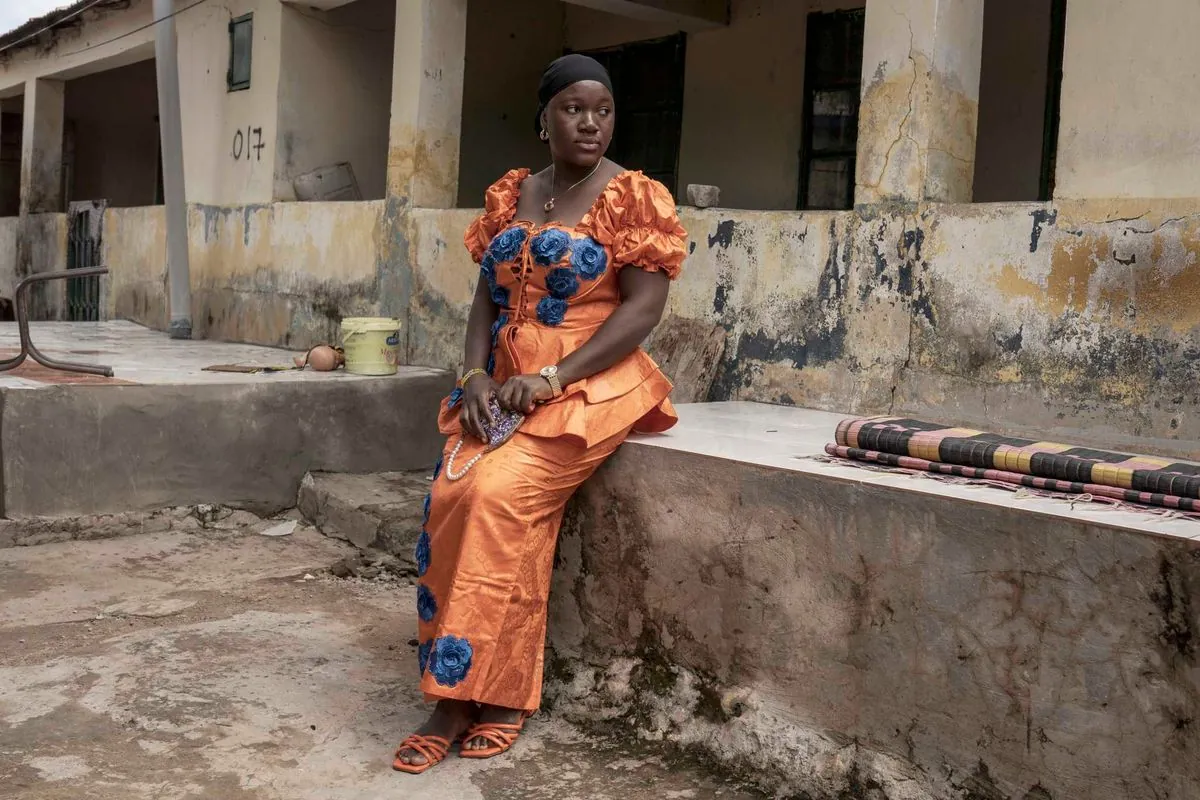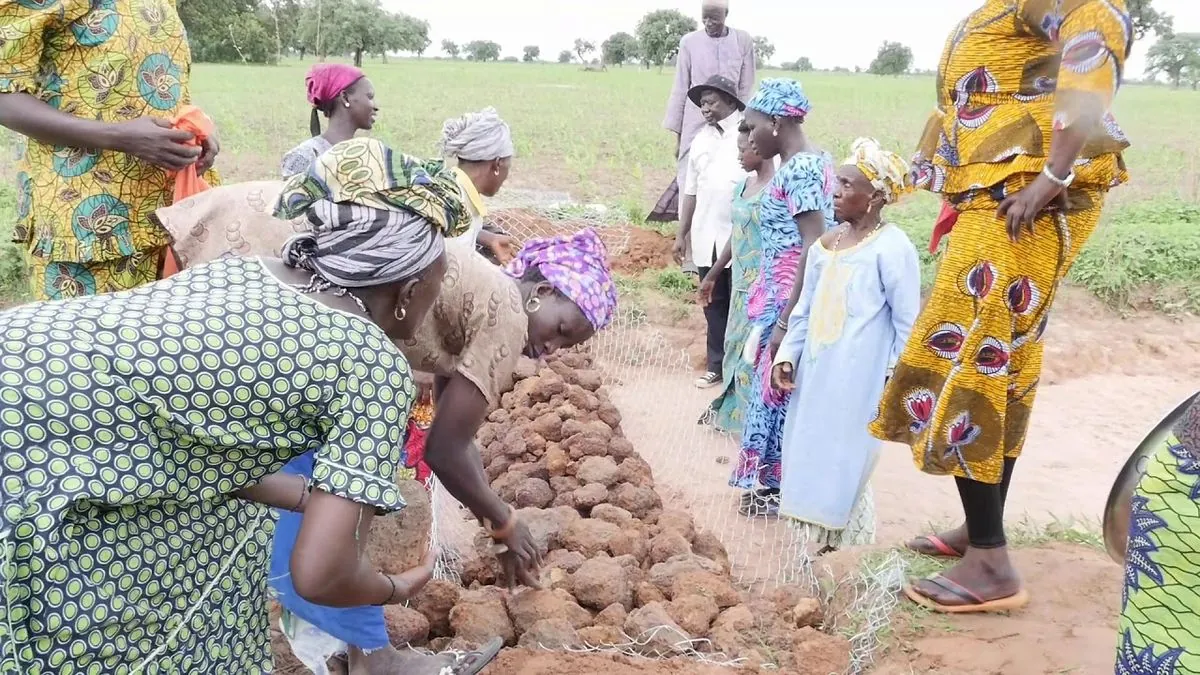Gambia's Remittance Lifeline: The High Stakes of Migration
Gambian migrants in Europe send crucial remittances home, sustaining families but leaving communities bereft. The dangerous journey and family separations highlight the complex reality of migration.

In the small West African nation of Gambia, the impact of migration is profoundly felt in villages like Kwinella. Binta Bah, a 24-year-old resident, exemplifies the modern face of long-distance relationships shaped by migration. She married her husband, Suleyman Bah, via video call after meeting on a dating app just a year ago. Their story reflects a growing trend in Gambia, where nearly 10% of the 2.7 million population has left the country, primarily young men from rural areas.
Gambia, the smallest country on the African mainland, is uniquely shaped like a finger protruding into Senegal. Despite its small size, it plays a significant role in the migration narrative of West Africa. The country's economy heavily relies on remittances, which account for a staggering 25% of its GDP – the highest proportion in Africa.
The reasons for this exodus are multifaceted. Gambia's economy, primarily based on tourism and agriculture, has been struggling. The country faces challenges such as a high youth unemployment rate of around 40% and a rapidly growing population. Climate change has also taken its toll on traditional farming practices, making agricultural livelihoods increasingly unsustainable.

In Kwinella, Moustapha Sabally, deputy chief of Kiang Central province, estimates that about 70% of young men have left for the capital, Banjul, or Europe. This exodus leaves behind a community of women and older individuals struggling with labor-intensive farming. The absence of young men has created a dependency on remittances, which have become a crucial lifeline for many families.
The journey to Europe, known locally as "the backway," is fraught with danger. Migrants often risk their lives crossing the Atlantic Ocean in unsafe boats or trekking across the Sahara Desert. Tragically, many do not survive the journey. Earlier this year, a boat carrying 300 migrants, mostly from Gambia and Senegal, capsized off Mauritania, resulting in numerous deaths and disappearances.
Despite these risks, the allure of potential economic opportunities in Europe remains strong. Last year alone, over 8,000 Gambians arrived in Europe, according to the International Organization for Migration. The impact of these migrations is significant, with remittances amounting to over $730 million in 2023.
"He misses all the important moments. He hasn't even met our youngest daughter."
The personal cost of migration is high. Families like Musukebbe Manjang's experience long separations and missed milestones. Her husband left for Italy ten years ago and has yet to meet their youngest child. While the monthly remittances of about $200 cover essential needs, the emotional toll is significant.
Gambia's unique challenges and the migration phenomenon are set against a backdrop of a country rich in cultural diversity and natural beauty. Home to various ethnic groups including Mandinka, Fula, and Wolof, Gambia boasts a tropical climate and biodiversity that includes hippos and crocodiles in the Gambia River. The country has been working to promote sustainable and eco-tourism, seeking to diversify its economy.
As Gambia grapples with these complex issues, the future remains uncertain. The country's high rate of female genital mutilation, despite eradication efforts, and its history of political instability, including a 22-year dictatorship that ended in 2017, add layers to the challenges faced by its people.
The story of Gambian migration is one of hope, desperation, and resilience. As families like Binta Bah's and Musukebbe Manjang's navigate the realities of long-distance relationships and economic dependence on remittances, the broader implications for Gambia's development and social fabric continue to unfold. The balance between the benefits of remittances and the costs of brain drain and family separation remains a critical issue for this small but significant West African nation.


































